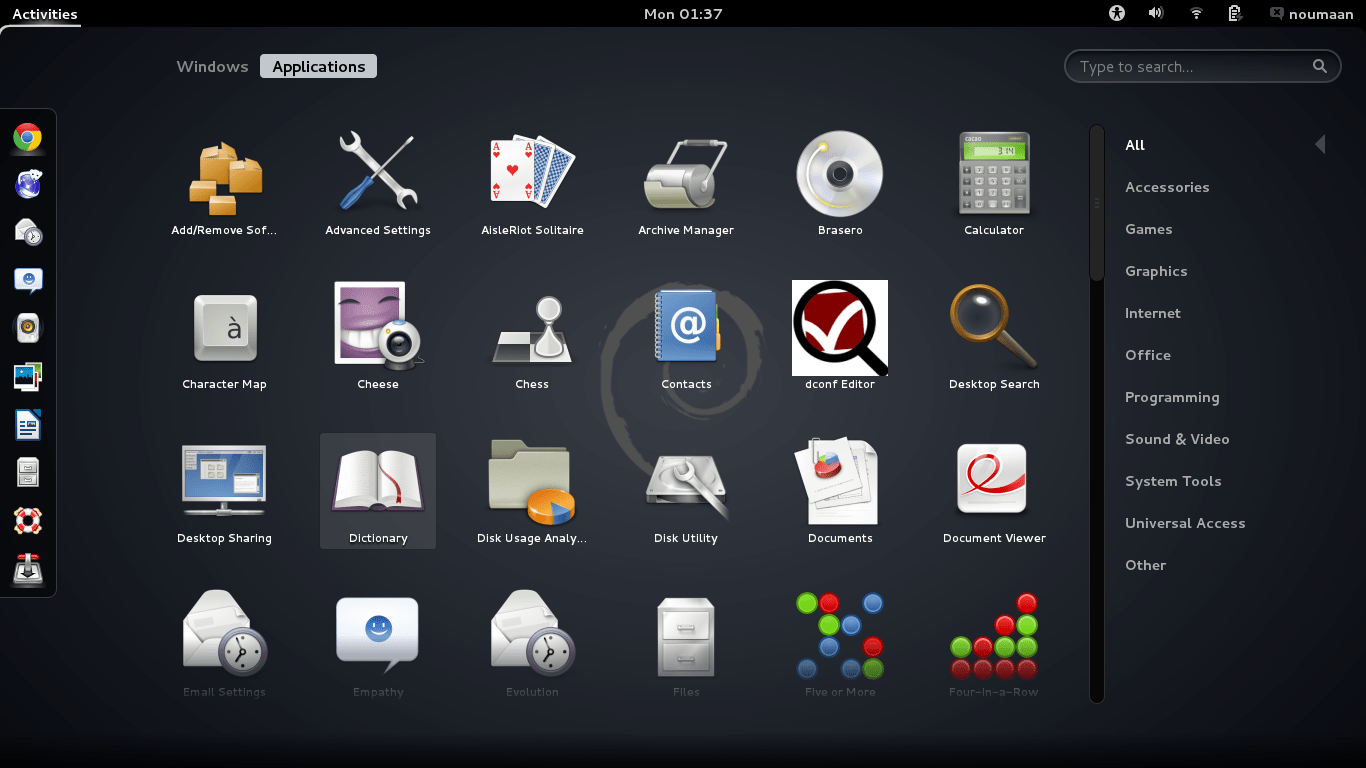
Debian was begun in August 1993 by Ian Murdock, as a new distribution which would be made openly, in the spirit of Linux and GNU. Debian was meant to be carefully and conscientiously put together, and to be maintained and supported with similar care. It started as a small, tightly-knit group of Free Software hackers, and gradually grew to become a large, well-organized community of developers and users. See the detailed history.
Since many people have asked, Debian is pronounced /ˈde.bi.ən/. It comes from the names of the creator of Debian, Ian Murdock, and his wife, Debra.
Debian systems currently use the Linux kernel or the FreeBSD kernel. Linux is a piece of software started by Linus Torvalds and supported by thousands of programmers worldwide. FreeBSD is an operating system including a kernel and other software.
However, work is in progress to provide Debian for other kernels, primarily for the Hurd. The Hurd is a collection of servers that run on top of a microkernel (such as Mach) to implement different features. The Hurd is free software produced by the GNU project.
A large part of the basic tools that fill out the operating system come from the GNU project; hence the names: GNU/Linux, GNU/kFreeBSD and GNU/Hurd. These tools are also free.
Of course, the thing that people want is application software: programs to help them get what they want to do done, from editing documents to running a business to playing games to writing more software. Debian comes with over 37500 packages (precompiled software that is bundled up in a nice format for easy installation on your machine) — all of it free.
It's a bit like a tower. At the base is the kernel. On top of that are all the basic tools. Next is all the software that you run on the computer. At the top of the tower is Debian — carefully organizing and fitting everything so it all works together.
SUPPORTED HARDWARES?
Debian will run on almost all personal computers, including most older models. Each new release of Debian generally supports a larger number of computer architectures. For a complete list of currently supported ones, see the documentation for the stable release.
Almost all common hardware is supported. If you would like to be sure that all the devices connected to your machine are supported, check out the Linux Hardware Compatibility HOWTO.
There are a few companies that make support difficult by not releasing specifications for their hardware. This means you might not be able to use their hardware with GNU/Linux. Some companies provide non-free drivers, but that is a problem because the company could later go out of business or stop support for the hardware you have. We recommend that you only purchase hardware from manufacturers that provide free drivers for their products.
However, work is in progress to provide Debian for other kernels, primarily for the Hurd. The Hurd is a collection of servers that run on top of a microkernel (such as Mach) to implement different features. The Hurd is free software produced by the GNU project.
A large part of the basic tools that fill out the operating system come from the GNU project; hence the names: GNU/Linux, GNU/kFreeBSD and GNU/Hurd. These tools are also free.
Of course, the thing that people want is application software: programs to help them get what they want to do done, from editing documents to running a business to playing games to writing more software. Debian comes with over 37500 packages (precompiled software that is bundled up in a nice format for easy installation on your machine) — all of it free.
It's a bit like a tower. At the base is the kernel. On top of that are all the basic tools. Next is all the software that you run on the computer. At the top of the tower is Debian — carefully organizing and fitting everything so it all works together.
SUPPORTED HARDWARES?
Debian will run on almost all personal computers, including most older models. Each new release of Debian generally supports a larger number of computer architectures. For a complete list of currently supported ones, see the documentation for the stable release.
Almost all common hardware is supported. If you would like to be sure that all the devices connected to your machine are supported, check out the Linux Hardware Compatibility HOWTO.
There are a few companies that make support difficult by not releasing specifications for their hardware. This means you might not be able to use their hardware with GNU/Linux. Some companies provide non-free drivers, but that is a problem because the company could later go out of business or stop support for the hardware you have. We recommend that you only purchase hardware from manufacturers that provide free drivers for their products.
MORE INFO ABOUT DEBIAN IS ON www.debian.org
DOWNLOAD
Debian OS [LiveCD/DVD/USB]
"Hybrid ISO"
GNOME Desktop
KDE Desktop
LXDE Desktop
XFCE Desktop
"Hybrid ISO"
HybridISO image files suitable for writing to DVD-R(W) or CD-R(W) media, depending on size, and also USB keys of the appropriate size
[x64 - Torrent]
Standard (Original) Rescue CD
GNOME Desktop
KDE Desktop
LXDE Desktop
XFCE Desktop
[x86 - Torrent]
Standard (Original) Rescue CD
GNOME Desktop
KDE Desktop
LXDE Desktop
XFCE Desktop











0 comments :
Post a Comment